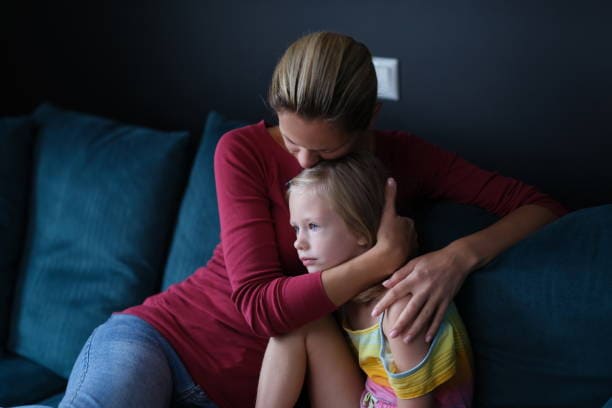The best interests of the child is the most important consideration in any family law matter. In the Family Law Act, best interests of the child are outlined under Subdivision BA and Subdivision BB under Division B of Part VII. Part VII of the Act deals with all matters related to children.
For this article on Family Law Act best interests of the child, we’ll be exploring the Sections under both Subdivisions BA and BB. There are a total of 10 Sections under both these Subdivisions.
To begin with, Section 60CA states that the court should regard the best interests of the child as the paramount consideration before making any parenting order. Moreover, Section 60CB emphasises that this paramount consideration applies to all proceedings under this Part i.e. Part VII Children.
Section 60CC: Determining Child’s Best Interests
According to this Section, there are primary considerations and additional considerations to determine child’s best interests. The primary considerations are as follows:
- the benefit to the child of having a meaningful relationship with both of the child’s parents, and
- the need to protect the child from physical or psychological harm as a result of a person subjecting them to abuse, neglect or family violence
To have a look at all additional considerations, click here. Moreover, there are separate considerations if the child is an Aboriginal or Torres Strait Islander. For instance:
- the child’s right to enjoy his/her Aboriginal or Torres Strait Islander culture,
- the parent’s attitudes towards the child etc.
Section 60CD: Child’s Views
Under Family Law Act best interests of the child, Section 60CD outlines how the child’s views are expressed. The court can consider the views of the child that they express through:
- any family report or child impact report
- ordering that an Independent Children’s Lawyer (ICL) represent the views of the child
- any other means that the court thinks is appropriate
Notably, Section 60CE also states that children do not have to express their views if they do not wish to do so. Neither the court, nor does any other person have the permit to make the child express their views.

Section 60CF: Family Violence Orders
As part of Family Law Act best interests of the child, Section 60CF highlights points in relation to informing the court about family violence orders. The party has an obligation to inform the Court in the following circumstances:
- If a party to the proceedings is aware that a family violence order applies to the child, or a member of the child’s family, that party must inform the court of the family violence order.
- If a person who is not a party to the proceedings is aware that a family violence order applies to the child, or a member of the child’s family, that person may inform the court of the family violence order.
- Failure to inform the court of the family violence order does not affect the validity of any order that the Court makes.
Family courts take the issue of family and domestic violence very seriously. If a person exposes a child to violence in the household, the child will experience negative impacts on their mental and/or physical well-being.
Section 60CG: Risk of Family Violence
When the Court is making an order, it ensures that all orders are consistent with Family Law Act best interests of the child. In making orders in relation to family violence, the Court ensures that any order is:
- consistent with any family violence orders, and
- does not expose a person to an unacceptable risk of family violence.
Moreover, if the courts want to protect any person from family violence, they can also include safeguards in the order. These safeguards may be necessary to protect any person who is affected by the court order.
Section 60CH: Care Arrangements Under Child Welfare Laws
A party needs to inform the court if a child, or another child who is a member of the child’s family, is under the care of a person under a child welfare law. The party who informs the court may or may not be the party to the proceeding in question. If another person who is not directly involved in the proceeding is aware of this, they may inform the court as well.
Section 60CI: Informing About Notifications to State/Territory Agencies
If a party to the proceeding is aware that the child, or another child in the family, is or has been the subject of:
- a notification or report to a prescribed State or Territory agency; or
- an investigation, inquiry or assessment by a prescribed State or Territory agency, and
The notification, investigation, report, inquiry or assessment relates to abuse, an allegation, suspicion or risk of abuse, the party needs to inform the court of the matter. Furthermore, if a party is not directly involved in the proceedings, but is aware of this matter, he/she also has the obligation to inform the court.

Section 60D: Adviser’s Obligations in Relation to Best Interests
This Section under Subdivision BB of Part VII Division B discusses an adviser’s obligations when providing advice for matters concerning children. According to this Section, the adviser must:
- inform the person that the person should regard the best interests of the child as the paramount consideration; and
- encourage the person to act on the basis that the child’s best interests are best met by:
- the child having a meaningful relationship with both of the child’s parents, and
- the child being protected from physical or psychological harm from being subjected to, or exposed to abuse, neglect or family violence
Generally, while considering the above points, advisers should give greater weight to point (2) i.e. the need to protect the child from harm or abuse. Who can an “adviser” be? It can include legal practitioners like family lawyers, family law consultants, a family dispute resolution practitioner or a family counsellor.
Section 60E: Application of Part to Void Marriages
This Section falls under Subdivision C of Division 1 under Part VII of the Family Law Act. Section 60E discusses the application of this Part to void marriages. It states that this Part (Part VII) also applies to a purported marriage that is void.
Contact Us For Legal Advice
This article has explored Family Law Act and best interests of the child. For more articles on FLA, click here to visit our blog page. If you require more information or have any other enquiries, please do not hesitate to contact our friendly team of lawyers today.
Contact JB Solicitors.
